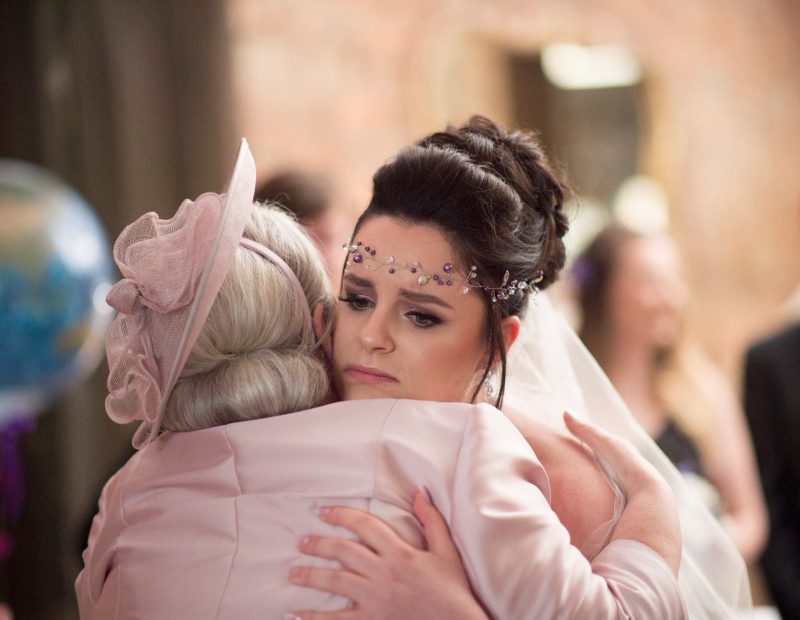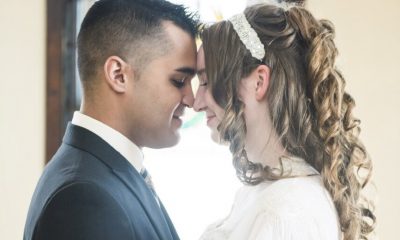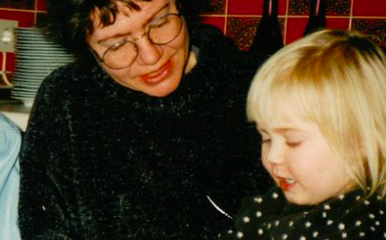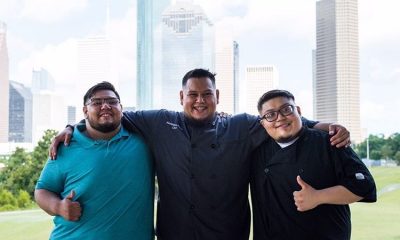by Anneliese McDaid
I’ve never been the sort of person who has lived a sheltered life. Grief has been a friend of mine for a very long time. Recognising her was the hard part for me. As a child, I was abused mentally, physically, and sexually, so it’s safe to say that grief has been a lotion I’ve had to put on every day, whether I wanted to or not.
She has walked beside me for many reasons, sometimes in profound silence and others just screaming at me! I didn’t know her then; she was a stranger to me. But as I got older and learned she was, in fact, called Grief, I began to learn about her and her ways until she became a friend to me. I have managed to utilise her as a way of completely abolishing any stigmas that come with her, lies that are told about her. But if you stop trying to battle with grief and allow yourself to hold her hand and walk her path, you will realise that she (or he) is actually you.
You are grief; your grief is caused by a complete inability to understand what it is you are hurdling over at that moment. In your mind, time has stopped, and you are at a complete standstill – nothing matters to you but you. No one matters, and you think no one cares because they move on faster or stop calling or don’t text as much as they used to. If we can only understand it, we can walk along with her free of the guilt that’s associated with her. Free of her pain, of her anxiety, of her depression, her mood swings, her overeating – or under eating – and we can grow from these experiences.
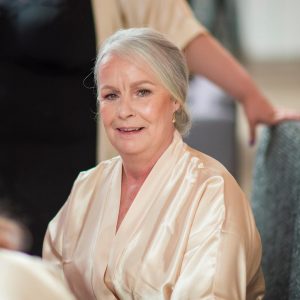 Last year, I lost my beautiful mum to suicide. Lockdown and a mixture of other things caused my mum to feel the need to take her own life. She took her life; she didn’t take mine or anyone else’s, she took her own, and that was her absolute right to do so. It was hers to take, and no one else’s to judge. A lot of people get wrapped up in the ‘whys’ of death and grief. To accept that there simply isn’t a why or a how or any sort of answer that will make you feel better is your best chance at coming out happy. Finding my mum that day, how she was, has been absolutely devastating; she was my whole world – it was her and me for more than half of my life.
Last year, I lost my beautiful mum to suicide. Lockdown and a mixture of other things caused my mum to feel the need to take her own life. She took her life; she didn’t take mine or anyone else’s, she took her own, and that was her absolute right to do so. It was hers to take, and no one else’s to judge. A lot of people get wrapped up in the ‘whys’ of death and grief. To accept that there simply isn’t a why or a how or any sort of answer that will make you feel better is your best chance at coming out happy. Finding my mum that day, how she was, has been absolutely devastating; she was my whole world – it was her and me for more than half of my life.
My brother (who was the person who sexually abused me) was taken away when I was ten and hung himself when I was thirteen. That left mum and me; she held every memory I have ever had in my life and everything I hold dear. She knew every cut, bruise, and sickness, and she walked me down the aisle at my wedding. When I saw her dead, I thought, well, that’s my whole world gone. Simply gone as I looked at her there on her living room floor; my life was gone, and so was my mum.
When your mum dies, you need to become a different kind of adult from the one you were before. Your safety blanket is ripped from you. You will never have it again to hold, to keep you warm, and make you feel protected from the darkness. The darkness can come seeping in now, and you have no idea what to do about it. Planning your mum’s funeral eleven days after you turn thirty isn’t what you plan for your life, especially when your mum is in good health, generally speaking.
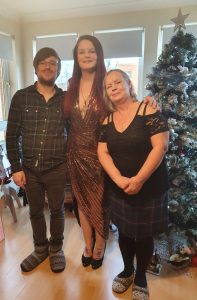 I decided to remind myself that this whole thing wasn’t about me! I didn’t die! My mum is the one who lost her life, so we should, by all means, celebrate everything about her. Everything she was, good and bad, and everything she wanted to be too. Her life meant something to us, and that’s why this sense of sadness had come over me. My internal little girl had run away and hid for safety while adult me dealt with all the paperwork. She was safe for now and didn’t need to feel the pain because robot me was out doing the tasks that the inner me just couldn’t face; her time to face it all would soon come, but that wouldn’t be until after we celebrate the life of my mum, during a pandemic.
I decided to remind myself that this whole thing wasn’t about me! I didn’t die! My mum is the one who lost her life, so we should, by all means, celebrate everything about her. Everything she was, good and bad, and everything she wanted to be too. Her life meant something to us, and that’s why this sense of sadness had come over me. My internal little girl had run away and hid for safety while adult me dealt with all the paperwork. She was safe for now and didn’t need to feel the pain because robot me was out doing the tasks that the inner me just couldn’t face; her time to face it all would soon come, but that wouldn’t be until after we celebrate the life of my mum, during a pandemic.
Her soul needed and deserved to be celebrated. And maybe we didn’t celebrate who she was enough when she was alive, but I find no great comfort in dwelling on these things that cannot ever be. It’s not easy to think like that; in fact, your brain is hard-wired to dive headfirst into the misery of it all as hard and as fast as it can. But you have the absolute control to tell it no! You can accept and demand more for yourself and from yourself.
When my mum passed, I took to writing and wrote a book called Grief, The Guide to be Unguided. It is about my life and hers, what we faced together, and how I have come out a happy and healthy person despite all the things I have been through in my life. This is because I took grief’s hand and let her show me the way to happiness; I took her hand and let her lead me to a level of self-awareness I never knew I was capable of. I discovered that by allowing myself to feel the pain, cry the tears, and being extremely open about my life, my abuse, and my suffering to others, I was allowing myself to ultimately be free.
We all deserve that freedom! So go out and get yours. You’re in control here!
For more information about Annaliese, you can check out her Facebook page.
Support us by driving awareness!
Subscribe to our YouTube channel at YouTube.com/GrapGrief.
Follow us on Facebook at Facebook.com/GrapGrief and on Instagram at Instagram.com/GrapGrief.




